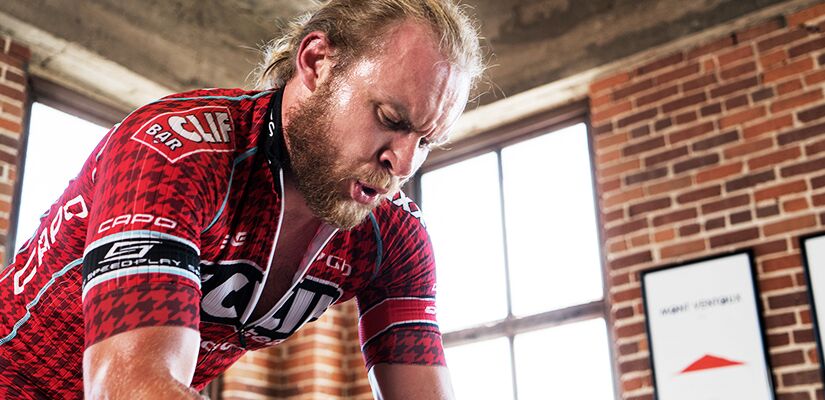Beards and Buns: Can They Make You Faster?

“Why does that guy have a beard and long hair? That’s gotta make him less aero…”
In episode 53 of the Ask a Cycling Coach podcast, we sat down with Clif Bar Team Rider Pete Morris and received the question above. For all you long-haired bearded riders out there, let’s get to the bottom of this…
Pete didn’t hesitate when the question was asked, and his response was simple: “It’s not exact science, but in my experience, with people yelling and cheering, I’m going to do better than if I shaved my beard and my hair.” Pete gets pumped when those cheering him on are pumped — and Pete’s beard and hair does exactly that. So he’ll stick to the hair-do and scruff.
The question we have then is this: “Does the psychological benefit of having long-hair and a beard outweigh the benefits a rider would get from being more aerodynamic without the extra fur?” When it comes to a long-hair/beard combo, it may boil down to what you think is going to make you faster.
The Science
Specialized’s aerodynamicists Chris Yu and Mark Cote were determined to get to the bottom of the aero side of things, and with two tests in the Specialized Win Tunnel, they did exactly that.
The Beard
After comparing a rider’s aerodynamics with a beard and without, the drag coefficient with the beard amounts to roughly an extra second over the course of a 40 km simulation. Essentially next-to-nothing as far as an aerodynamic gain/loss. So, what about the do?
The Hair
In Specialized’s video “When is a hairdo a hair don’t?”, we’re able to gain more insight needed to support Pete’s thoughts. The results are a bit mixed: between hair down, ponytail, and a bun; none are significantly faster than the other. The only style that proves to be faster (14 seconds faster over 40 km) is when the rider’s hair is put into a braid.
Takeaway
We now know the science, but still don’t have huge insight on the psychological side of things. This is because it’s something you have to figure out on your own end. It’ll come down to whether you think you’ll be faster from the psychological benefit to make up for any potential loss in aerodynamics. Pete will stick to his look — how about you?
Listen to Experts Discuss This Training Topic and More on the Ask a Cycling Coach Podcast
The cycling experts at TrainerRoad discussed how psychological benefits may overcome aerodynamic losses during episode 53 of the Ask a Cycling Coach podcast. Listen below to hear exactly what they had to say.
Additional Notes
TrainerRoad’s Ask a Cycling Coach podcast is dedicated to making you a faster cyclist. It gives you the chance to get answers to your cycling and triathlon training questions from USAC certified coaches Chad Timmerman, Jonathan Lee and special guests. Learn more about other topics we covered in the latest episode with our resources below:
• Clif Bar Team’s Pete “Thor” Morris
• How to travel with your bike
• Aerodynamics vs. psychological advantage
• What metrics should you use to measure progress?
• Does a beard or long hair slow you down?
• Is chocolate milk a good recovery drink?
• What is the best recovery drink?
• How recovery drinks work
• Criterium racing tactics
• How to become a better road racer
• How to race smart and save your energy
• Are power meters necessary?
• How to measure and understand your progress
• 3 most important tips for better bike handling
• How to warm up for a time trial
• How to become a better bike handler
• What is the best way to learn bike skills?
• Is it possible to become a better bike handler without technical terrain?
• Which bike should always have a power meter installed on it?
If you have a question that you’d like to ask Coach Chad, submit your question here. We’ll do our best to answer it on the next episode of the Ask a Cycling Coach podcast.